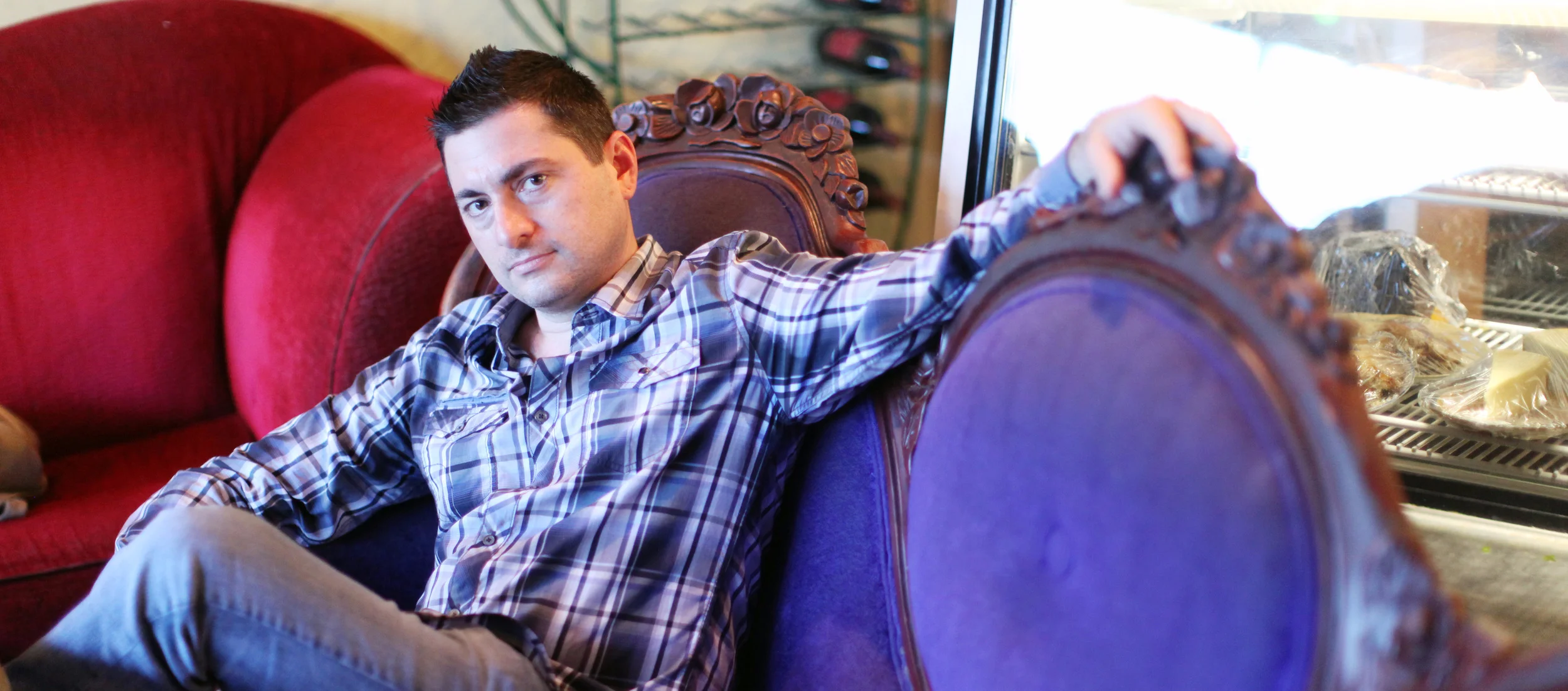Craig (00:00):
Today we're going to be talking about how do I change and how do I show an ex that I've changed? You know, we're always talking about change and personal growth on the channel and it's not easy to do, is it? And Margaret, you and I were talking about this recently, that one of the things that comes along with that is actually fear.
Margaret (01:01):
Absolutely even good change is scary. Any change scares us human beings. We are frail little things, actually we are. Yeah, but even good change is scary.
Craig (01:13):
But you know, when you're trying to repair a relationship or repair your relationships with other people and learn to have healthier relationships, you have to make changes in order to do it, but it's not easy to do. So, Coach Victoria is going to be sharing some research that she did on this today.
Victoria (01:32):
Great. Sure. I have five steps that will help you in conducting change in your life. So the first step is a step if that we talk about a lot on the channel, and this one is awareness. It's recognizing harmful patterns in your relationships. If you're attracting the same kind of toxic people in your life, or if you're the one who's doing toxic behaviors in your relationship, it takes noticing these. And it's also to take it a step further. It's also knowing the ways in which your childhood has affected your present day behaviors.
Craig (02:05):
That's a big, that's such a big point because, you know, in order to fix a problem, you need to know what it is.
Margaret (02:12):
You can't fix a problem you're unaware of.
Craig (02:14):
So that's, that's so critical. And that's why oftentimes when you guys come to the channel and you're hearing us talk about these things, they're like, Oh my gosh, I've been doing this thing for this entire relationship or my entire life.
Margaret (02:26):
And it's never easy because you're admitting that you'll have a flaw, but you feel so much better when you do, you know, when it doesn't become the end of the world. It's okay. We all have our problems. We all have our blind spots.
Craig (02:39):
Except for Margaret.
Margaret (02:39):
Well, except for me, I just sit around describing them to others.
Victoria (02:46):
All right. So the next one is adopting new beliefs and reinforcing them every chance you get, and this is not easy to do. No, not at all. This is the next step after awareness and awareness is only as helpful as much as it emboldens you to take a risk and to try something new. And I think Craig, that you've touched on this before and talking about how anxiety can seem like the resting state, if that's what we're familiar with after so long. Now the one with this point is that taking a risk in trying something healthy that can seem as something outside of the ordinary and can seem different and uncomfortable.
Craig (03:24):
That's the first thing that came to mind, right? Cause you're like, I don't, this is awkward. I don't, I'm not used to this. So trying that can be like, you know, if you're like a baseball player and you're trying something new with your swing, it feels uncomfortable at first. You don't, it doesn't feel like the same, but if you want to improve, you have to do those things.
Victoria (03:43):
Right. And also with this one, if you work every day, doing something towards your goal, that's going to help you in the long run. Yep. And new beliefs can sound like I don't need to beg for love or I'm at worthy of love.
Margaret (03:56):
That's a big one. I'm worthy of love.
Victoria (04:00):
Or I can become more comfortable with receiving love as well. Yep. You can reinforce these ideas with affirmations, with positive self-talk with doing something that makes you feel good every day. Just having a routine of self care will really help you.
Margaret (04:17):
I wanted to make one comment. It's hard to imagine that people sometimes don't know what to do when someone loves them. But if you grew up in a family that didn't know how to tell you, or didn't know how to show you that your loved, it can be an absolutely foreign experience. And you don't know if it's safe to take it. Yeah. It feels uncomfortable. Right.
Victoria (04:38):
Okay. That leads perfectly into my next point of, accept that discomfort will be part of the process. So we did touch on this a little bit just now. But it can be uncomfortable to move away from the patterns that were literally developed by your brain and body to protect you at one point. Yeah.
Craig (04:57):
And that felt natural because you just kind of did it as it happened. And now you're trying to undo that. So that's really, it just awkward. Right.
Victoria (05:06):
And an example of this can be hyper-vigilance. If you were feeling super sensitive to your partner, abandoning you and you're, you're keeping your eyes open for any sort of threat that may lead to your abandonment self-soothing is going to take a while before your body becomes used to that and becomes receptive to that.
Craig (05:27):
Yeah. Your natural state might be to constantly obsess about what your partner is doing and if they're abandoning you and getting used to that, okay, they need space. I need to allow for that. That's uncomfortable.
Victoria (05:43):
Right? So knowing and accepting this discomfort as part of the process is also going to help you be aware of your changing process because change is never easy and it's never comfortable. No, it's not.
Craig (05:58):
And oftentimes you're going to slip back into old routines. So you're going to find that you're making mistakes and you've got to be aware of all. I did it again. I'll be, I'll catch it next time.
Victoria (06:10):
The next one I have is surrounding yourself in an environment conductive to your change. So this emphasizes the importance of community in your transformation process of surrounding yourself with role models and mentors that can show you this can be done and you can do it too. And it's possible.
Craig (06:29):
Absolutely. It's possible
Margaret (06:31):
Role models and mentors are very important. This person looks like they have it together. Let me figure out how they do it.
Victoria (06:38):
And also having supportive family and friends being around you. An example of this could be with addiction if you're addicted to a substance and you're around others who are addicted to that substance substance, it's going to be harder for you to change and change for the longterm.
Craig (06:53):
Yeah. Cause you're gonna be tempted and they're going to tempt you. Oh yes. Because they don't want to be alone in their addiction. They want you with them. Right, right. Misery loves company.
Margaret (07:05):
Misery really loves company. And besides you might leave, if you get healthy. Yep.
Victoria (07:10):
And it's going to be more difficult for you to change and break those old patterns if you're around those people that perpetuate those old patterns and bring that out of you.
Craig (07:18):
Yeah. Absolutely. Good, good, very good points.
Victoria (07:22):
Another to go further with this point also in what you surround yourself, as far as media, as far as what you're doing on your phone, as far as your hobbies, these are also inputs into your environment as well. So also be aware of, of the messages that you're receiving from the outside as well.
Craig (07:40):
That's going to impact you and you know, whether you were consciously aware of it or not, it's going to impact you. Sure. Yeah.
Victoria (07:49):
All right. My next point is not giving up. And you mentioned this earlier, but you may experience some fallback and don't let this stop you or hinder you from where you're trying to be. This is also part of the process. And you can learn from this progression is not just a linear, straight path. It's jagged with unexpected circumstances that happen and your resilience and ability to step back up and get back into the game and focus on what you're trying to do is really going to impact your lasting change.
Margaret (08:20):
Everybody makes mistakes. You can't be perfect while changing. And sometimes you need a rest, go back to your old ways for a bit and then go forward again.
Craig (08:30):
And sometimes you have to make a mistake to be aware of, Oh, I fell back into that pattern again, you know, so yeah. Not giving up and just focusing on who you want to become a year from now, who do you want to be a year from today from watching this? You can determine the speed that you grow and you know, how much effort you put in and no one, can you back if that's what you're focused on doing no matter what your issues are. Right,
Victoria (09:02):
And also as you progress, you might find yourself regressing a little bit as well. I think Margaret, you may have mentioned this to me before?
Margaret (09:12):
I know what Vicky's referring to. I had a wonderful supervisor once and I was very discouraged with one of my clients. And she said, oftentimes there is a progression before a leap forward. And it was exactly what was happening. We sort of dropped back, pick up all our old defenses, add up the new ones and then go ahead. But it's hard for a therapist when you've done a whole lot of work and you're ready for a breakthrough and then you seem to fall back, but she was right. And it was a profound point. Yeah.
Craig (09:42):
So expect it. Anything else?
Victoria (09:45):
Yes, I'm on my last one is on a positive note and that's to enjoy the fruits of your labor and celebrate the progress that you've made. Also, as far as you get, sometimes you need to take a look back to see how far you've come and how far you've grown. Yeah. So I just wanted to note that out that also notice the positive changes you're making on the day to day on the moment to moment and celebrate every success that you have because you deserve it.
Craig (10:12):
Yeah. And there's a good chance many of you have made a lot of progress from when you started watching the channel initially, and you've already had a lot of insights and a lot of growth and just continue it and you'll feel so much better. Right? Good stuff. All right. That was a really good research there. And I hope that you found this helpful.

